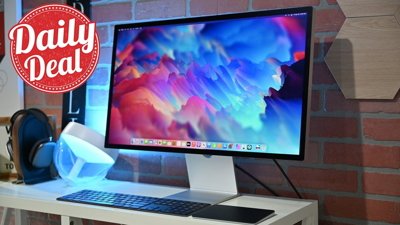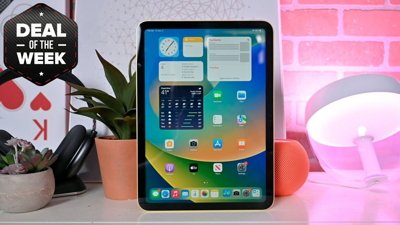The gaffe prompted Intel's senior vice president Anand Chandrasekher to publish a correction Thursday on his Chip Shots blog over the "inappropriate" comments made by its lower-level executives, who took turns whaling on the iPhone as a device incapable of providing true Internet access due to alleged limitations of its ARM-based microprocessor.
"It's hard to see this as anything other than an formal apology to Apple and ARM for comments made by Intel's Shane Wall and Pankaj Kedia at the company's Intel Developer Forum in Taipei," wrote CNet News.com's Tom Krazit.
"Among other things, the executives resurrected Intel's lame 'ARM chips can't handle the Internet' argument and singled out the iPhone as an example of a smartphone that could be really awesome if it only used one of Intel's low-power x86 architecture processors, known as Atom."
In his correction, Chandrasekher attempted to distance the firm from the executives' remarks and conceded that Atom has a long ways to go before it can attempt to rival the power efficiency and battery life characteristics that ARM chips provide for handheld devices, a key element of the processor architecture's dominate use in over 90 percent of mobile phones worldwide.
He added that his subordinates had no business posturing Intel technology by criticizing the designs of partners, and even went one to praise the iPhone as an "innovative product" that has spawned broad market potential:
Anand Chandrasekher issued a correction on comments made by members of his team yesterday at Intel's Developer Forum in Taiwan. As general manager of the Group responsible for Intel's ultra-mobility products, he acknowledged that Intel's low-power Atom processor does not yet match the battery life characteristics of the ARM processor in a phone form factor; and, that while Intel does have plans on the books to get us to be competitive in the ultra low power domain - we are not there as yet. Secondly, Apple's iPhone offering is an extremely innovative product that enables new and exciting market opportunities. The statements made in Taiwan were inappropriate, and Intel representatives should not have been commenting on specific customer designs.
Unlike rival electronics and PC makers who largely follow Intel's architectural lead, Apple has proven to be remarkably successful at beating to the sound of its own drum. It's resisted Intel's claims that x86 processors represent the clear architectural path to powering the future of mobile computing, and has instead acquired chip designer P.A. Semi to begin work on future generation of ARM-based SOCs for iPhones and iPods that will offer unique advantages, and further distance the company from its peers.
Apple would also like to apologize...
But as CNet's Krazit points out, Intel's apology raises the question of whether, after three years of unfettered cooperation, there's a bit of bad blood brewing between the chipmaker and Apple over differences in their mobile hardware strategies.
In the end, "they'll be fine, although Intel is sleeping on the couch tonight," he wrote. "This week's exercise, however, is an interesting example of how much power Apple wields over one of the most important and historic companies in technology."
Intel is likely to be particularly conscious of its standing with Apple given that the Mac maker has recently replaced the Intel controller chipsets it has used ever since its transition to Intel CPUs in 2006 with a new more powerful controller from NVIDIA in its latest line of top selling MacBooks.
 Katie Marsal
Katie Marsal













 William Gallagher
William Gallagher

 Christine McKee
Christine McKee
 AppleInsider Staff
AppleInsider Staff
 Chip Loder
Chip Loder

 Malcolm Owen
Malcolm Owen








25 Comments
That video puts the icing on the cake
I'm glad to see Intel kissing Apple's ass, thats a good thing for us.
Don't forget the previous "Snail Ad" Commercial featuring the Pentium II on top of a Snail, claiming to be the fastest processor at the time.
I'd love to find out what happened to those two "lower-level" execitives.
I would pay money to hear the phone call that went from Steve Jobs to Intel HQ that resulted in this profuse apology.
It would be awesome if Apple released a Phenom powered Mac Mini, just to remind Intel that Apple bought into the X86 platform but there happens to be two vendors for it!
Not that I think it is even remotely possible, now if Apple had turned to the ATI 780 chipsets then I would hope for a Phenom something from Apple. Even if Apple did not use AMD chips right now, if they had went with the 780 Intel would always be waiting for that shoe to drop.
This statement by the two lower level executives is not the only Intel slap aimed Apple's way. Remember the specially packaged chip for the MacBook Air that Intel did at Apple's request? I am sure it made Apple mad when Intel shopped it to other companies.Edit: Don't get me wrong. I realize that Nvidia (CUDA) is the best choice by far since Apple will be leaning on OpenCL and Grand Central.